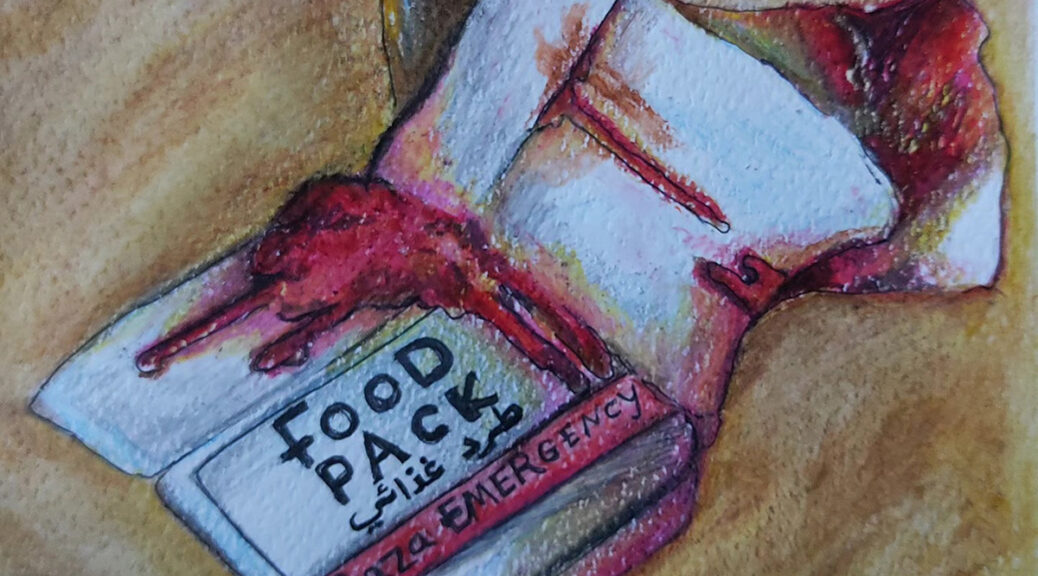What is life like in Gaza, more than a year since Israel began its military assault there? I spoke to Mariam Salah, a twenty-nine-year-old artist and teacher who lives there, for a personal perspective on the war. Salah has lost six family members and eight friends since Israeli forces swept into the Gaza Strip in response to a Hamas-led series of attacks on October 7, 2023. They are among the tens of thousands of Palestinians reported to have been killed during the ongoing conflict, which shows no sign of ending. An estimated 1.9 million out of Gaza’s 2.2 million residents have been displaced, while the fates of dozens of hostages taken by Hamas are still unknown.
When the Israeli military assault began, Salah was living in Gaza City. She and her family have been forced to flee their homes several times since then. Currently, they are camping out in Khan Yunis in the south—“seeking shelter amid the rubble we’re surrounded by,” as she puts it.
A painter and sculptor, Salah had her work exhibited in galleries throughout Palestine before the war. She designed costumes, masks, and puppets for a local company called Theater Days. Salah also worked with children as an art teacher and art facilitator at schools run by the United Nations Relief and Works Agency (UNRWA), the main U.N. aid group in Gaza. She graduated in 2017 with a bachelor’s degree in art education from Palestine’s Al-Aqsa University—since flattened by Israeli strikes. “Every single place I used to study or work has been turned into rubble.”
Continue reading No One Has Been Left Untouched: A Conversation with Palestinian Artist Mariam SalahAyah Victoria McKhail Ayah Victoria McKhail is a writer based in Toronto, Canada.
- Follow us on Twitter: @inthefray
- Comment on stories or like us on Facebook
- Subscribe to our free email newsletter
- Send us your writing, photography, or artwork
- Republish our Creative Commons-licensed content


